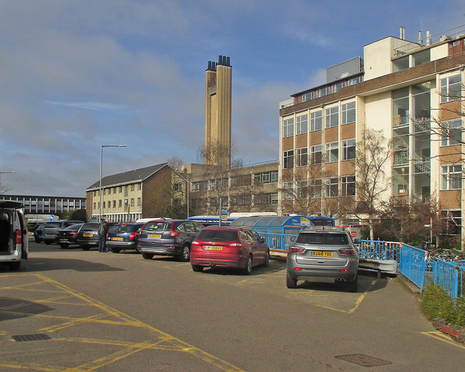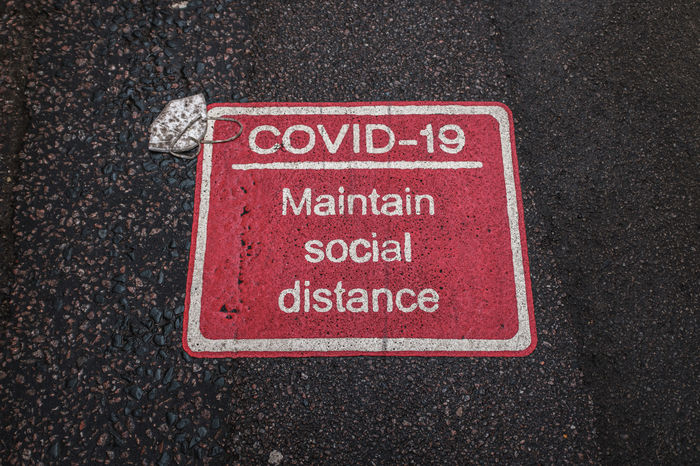University of Cambridge clinical trial aims to reduce deaths after Covid-19 hospitalisation
The HEAL-COVID trial also aims to lower hospital readmission rates

The University of Cambridge has today (25/03) announced that it is leading a UK-wide study to reduce the number of people who die or are readmitted to hospital following an initial period of hospitalisation with Covid-19.
The HEAL-COVID clinical trial, which stands for ‘Helping to Alleviate the Longer-term consequences of COVID-19’, is funded by the National Institute for Health Research (NIHR) and the NIHR Cambridge Biomedical Research Centre.
A statement on the University website refers to data collected by the Office for National Statistics (ONS), which found that of 47,780 patients who were hospitalised between 1 January 2020 and 31 August 2020 with an initial diagnosis of Covid-19, 29.4% were readmitted within 140 days of being discharged, and 12.3% died within the same period.
According to the study, the rate of readmission was 3.5 times higher than that of a control group of hospitalised patients without coronavirus, while the death rate was seven times higher in the case of coronavirus patients.
The HEAL-COVID trial, led by the Cambridge University Hospitals NHS Foundation Trust, the University of Cambridge, the Liverpool Clinical Trials Centre at the University of Liverpool, and the healthcare technology company Aparito, will enrol Covid-19 patients following their discharge from hospital.
The patients will be randomised and assigned one of two drugs, either apixaban or atorvastatin, with an unnamed third drug on the horizon for inclusion in the trial once recommended by the UK COVID Therapeutic Advisory Panel. It is hoped that these “safe, existing drugs” will “find effective treatments.”
Dr Charlotte Summers from the University of Cambridge and Addenbrooke’s Hospital, who has personally suffered from hospitalisation with Covid-19, said that “far too many patients find themselves back in hospital with new or long term complications. Unfortunately, many go on to die in the months after being discharged. This trial is the first of its kind to look at what drugs we could use to reduce the devastating impact on patients.”
Professor Carrol Gamble, Director of the Liverpool Clinical Trials Centre, added that the trial is “designed to allow us to remove or add-in treatment options in response to patient outcomes. Every effort has been made to design the trial to minimise burden on NHS staff and patients and represents a true team approach to science.”
Meanwhile Lord Bethell, Minister for Innovation, lauded the UK as a “world-leader” in its development of treatments in response to the pandemic, stating: “It is vital we continue our search for the best treatments for COVID-19, particularly to prevent people developing long-term complications after becoming ill.”
He continued: “Clinical trials platforms like HEAL are showing how innovative designs can mean we can reach just the right candidates, quickly and emphatically. I am massively grateful to the incredible scientists and clinicians at Cambridge University who are driving forward this life-saving work, which will play a critical role in putting this pandemic behind us.”
The announcement of HEAL-COVID follows the recent news of the University of Cambridge’s ‘Protect-V’ trial, which will test a range of drugs on approximately 2,250 participants to determine which treatments may best protect the most vulnerable, such as care home residents and immunocompromised patients, from contracting coronavirus.
 News / Judge Business School advisor resigns over Epstein and Andrew links18 February 2026
News / Judge Business School advisor resigns over Epstein and Andrew links18 February 2026 News / Gov grants £36m to Cambridge supercomputer17 February 2026
News / Gov grants £36m to Cambridge supercomputer17 February 2026 News / CUCA members attend Reform rally in London20 February 2026
News / CUCA members attend Reform rally in London20 February 2026 News / Union speakers condemn ‘hateful’ Katie Hopkins speech14 February 2026
News / Union speakers condemn ‘hateful’ Katie Hopkins speech14 February 2026 News / Hundreds of Cambridge academics demand vote on fate of vet course20 February 2026
News / Hundreds of Cambridge academics demand vote on fate of vet course20 February 2026










